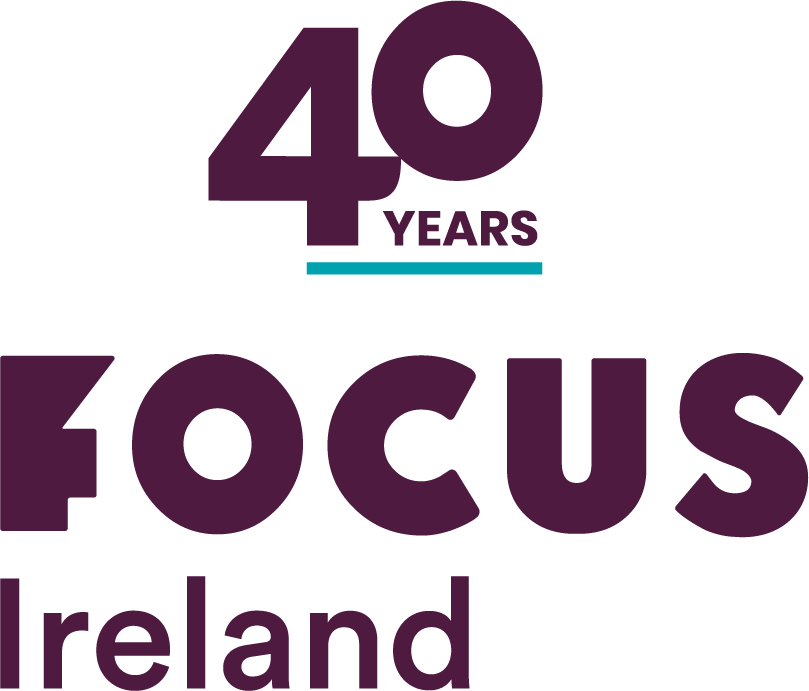New Focus Ireland research reveals homeless families struggling in system under severe strain
Call on all political parties use the final days of the election to set out how they will reduce homelessness
New research into the experience of families that became homeless in the aftermath of the Covid pandemic, published today (26th November) shows families struggling in a homeless system under severe strain as over 1,000 families became homeless in the aftermath of the pandemic restrictions.
The qualitative study, authored by Laurie O’Donnell, Aisling Slein and Daniel Hoey, is part of Focus Ireland’s ‘Insights into Family Homelessness’ series, and examine the experiences of 52 families who entered emergency accommodation in Dublin between August 2022 and November 2023. The study methodology is qualitative so explores in depth the experiences of the families involved and should not be assumed to be representative of all 1,134 families which were assessed as homeless in Dublin over the period. Nevertheless, the experiences of the families that participated offers critical insights into the systemic factors driving family homelessness, the barriers families face in accessing support, and the significant challenges of living in emergency accommodation.
Mike Allen, Focus Ireland’s Director of Advocacy and Research: “This report shines a stark light on the systemic inequalities faced by lone parents, particularly single mothers, in Ireland’s housing system. Behind every statistic in this report is a mother struggling to hold her family together in the face of eviction, substandard living conditions, or domestic violence. These families are not just experiencing homelessness, they are experiencing a profound failure of our systems to protect them. This situation demands an urgent, coordinated response to provide both immediate relief and long-term solutions.”
“Unfortunately, we have heard very few specific proposals from political parties about what can be done to end homelessness during the election. The Government parties are conveying a sense that they consider homelessness as an issue they do not want to discuss, about which they are ‘ashamed’ but to which there are no solutions. Focus Ireland has repeatedly shown that homelessness can be solved, and we call on all the parties during the closing days of the election to set out clear plans as to how they will bring mass homelessness to an end.
He adds: “This report portrays a homeless system under severe stress where, after the fall in family homelessness during the Covid restrictions, the removal of protections resulted in an almost unprecedented rise in the numbers of families becoming homeless. It is worth remembering that, until the day that the ‘no fault eviction ban’ was lifted, it was widely expected that it would be extended. It was a remarkable achievement by the Dublin local authorities to find emergency shelter for these families given this short notice, but the stains on the system are clear from the experiences of the families. The research provides challenging feedback to everyone involved in responding to family homelessness, including our own services.”
“While some of the reports about experiences in homeless services are a profound cause of concern, it is important to remember that emergency accommodation will always be ‘second best’ compared with having a secure home. So much of the homelessness reported in this survey was entirely avoidable with better systems, and our primary energy should go into creating a better housing system rather than trying to make homelessness nicer. “
Key Findings
- Families with stable housing histories in the private rental sector are continuing to become homeless due to ‘no fault’ evictions as landlords sell up. A number of families reported frustration about the failure of protections which should have prevented them losing their homes.
- Mothers in single parent households, who are over-represented in homelessness, experience significant challenges first in retaining their homes, then while homeless and finally in their efforts to leave homelessness.
- Domestic Violence continues to be a significant factor driving mothers into homelessness.
- The study picked up an unprecedented number of families (42% of those involved) where one or more parent was working, and who were struggling to hold onto their job will they were homeless. The parents related how, in many cases, the location of emergency accommodation and the rules in the emergency accommodation created additional challenges to them in holding on to their jobs.
- Families reported cramped, unsanitary conditions and a lack of privacy, safety, and appropriate food provision, particularly where their children suffered illness or had other special needs.
- Families expend a huge amount of time and energy trying to find private rental accommodation to escape from homelessness, but experiences discrimination and multiple stigmas from landlords
Recommendations for Change
In response to the findings, Focus Ireland has developed a series of recommendations aimed at tackling family homelessness.
Prevention
- Establish a cross-departmental task force to address the systemic disadvantages faced by lone parents.
- Implement existing recommendations to improve coordination between domestic violence, housing, and homelessness services.
Emergency Accommodation
- Adopt trauma-informed approaches across all family emergency accommodations, with comprehensive staff training.
- Conduct regular inspections of facilities to ensure compliance with safety and quality standards.
- Prioritize family placements near support networks, especially for lone parents and children with additional needs.
Exits from Homelessness
- Increase HAP rental thresholds for larger families to improve access to affordable housing.
- Widen housing options for long-term homeless families by allocating additional social housing and developing an enhancing the Rental Accommodation Scheme (RAS), which would be attractive to landlords and provide secure homes.
You can read the full report

